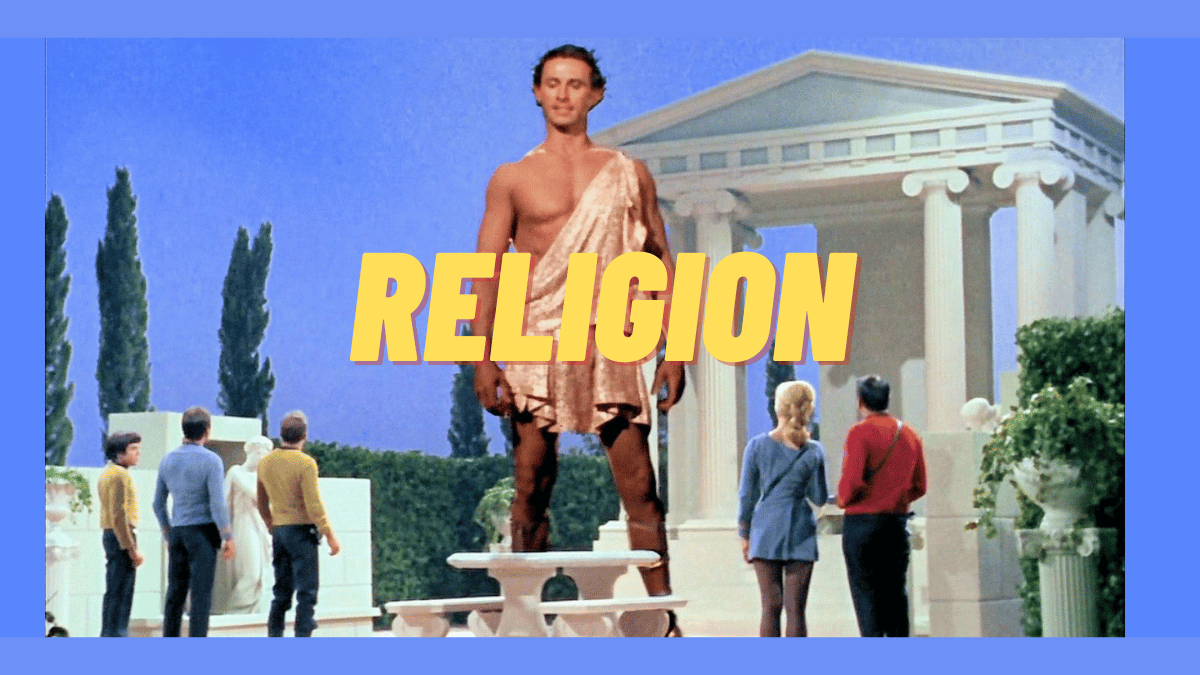Star Trek has long served as a platform to examine religion and spirituality through the lens of science fiction. The franchise presents a future where humanity has largely set aside traditional religious conflicts while still engaging with themes of faith and myth. Throughout its various series, Star Trek addresses the impact of religious ideas on society, the tension between science and belief, and the influence of alien deities on human thought.
The Original Series (1966–1969): Foundations of Religious Exploration
Gene Roddenberry, the creator of Star Trek, envisioned a future where human progress and reason had minimized the role of conventional religion. This secular outlook is evident in the original series, which premiered on September 8, 1966. Despite this, several episodes delve into the nature of faith, myth, and the divine.
In “Who Mourns for Adonais?” (aired October 13, 1967), the USS Enterprise crew encounters an alien claiming to be the Greek god Apollo. This episode raises questions about the origins of religious belief, suggesting that ancient myths might have stemmed from encounters with advanced beings. Similarly, “The Cloud Minders” (aired February 28, 1969) explores how societal elites use belief systems to control and oppress lower classes, reflecting historical instances where religion was employed to maintain social hierarchies.
The Next Generation (1987–1994): Science Versus Belief
Star Trek: The Next Generation (TNG), which debuted on September 28, 1987, continued the franchise’s exploration of religious themes. In “Who Watches the Watchers” (aired October 16, 1989), a Federation observation team inadvertently exposes a primitive culture to advanced technology, leading the inhabitants to deify Captain Jean-Luc Picard. This episode critiques the imposition of belief systems and underscores the ethical responsibilities that come with technological superiority.
Deep Space Nine (1993–1999): Religion and Politics Intertwined
Premiering on January 3, 1993, Star Trek: Deep Space Nine (DS9) offers a nuanced portrayal of religion through the Bajoran people and their worship of the Prophets—non-corporeal entities residing in a wormhole adjacent to the space station. Commander (later Captain) Benjamin Sisko is declared the Emissary of the Prophets, placing him at the intersection of Bajoran faith and Federation principles.
The episode “In the Hands of the Prophets” (aired June 20, 1993) highlights the clash between secular and religious worldviews when Vedek Winn objects to the teaching of scientific theories in Bajoran schools, advocating for religious instruction instead. This storyline mirrors real-world debates over the separation of church and state. Additionally, “Covenant” (aired November 25, 1998) delves into the dangers of extremist cults, as Gul Dukat leads a faction worshipping the malevolent Pah-wraiths, challenging established Bajoran religious beliefs.
Voyager (1995–2001): Personal Faith and Existential Questions
Star Trek: Voyager, which aired from January 16, 1995, to May 23, 2001, addresses individual struggles with faith. In “Mortal Coil” (aired December 17, 1997), crew member Neelix experiences a crisis of belief after being revived from death with no recollection of the afterlife he anticipated. This episode examines how personal experiences can profoundly impact one’s faith and the search for meaning in life.
Enterprise (2001–2005): Early Human Exploration and Cultural Clashes
Set in the early days of human space exploration, Star Trek: Enterprise (aired from September 26, 2001, to May 13, 2005) portrays humanity’s encounters with diverse alien cultures and their belief systems. The series often highlights the challenges of respecting religious practices while upholding Starfleet’s principles of non-interference. For instance, in “Cold Front” (aired November 28, 2001), Dr. Phlox mentions attending various religious ceremonies, indicating that multiple faiths persist into the 22nd century.
Discovery (2017–Present): Revisiting Faith in a Modern Context
Star Trek: Discovery, which premiered on September 24, 2017, revisits religious themes with a contemporary perspective. The series explores how faith and science can coexist and influence each other. In the episode “New Eden” (aired January 24, 2019), the crew encounters a human colony that has developed a religion blending elements from various Earth faiths, prompting discussions about the universality of belief and the human tendency to seek spiritual understanding.
Conclusion
Throughout its history, Star Trek has consistently engaged with complex questions surrounding religion, belief, and spirituality. By presenting diverse perspectives and hypothetical scenarios, the franchise encourages viewers to reflect on the role of faith in society and the ongoing dialogue between science and religion.

